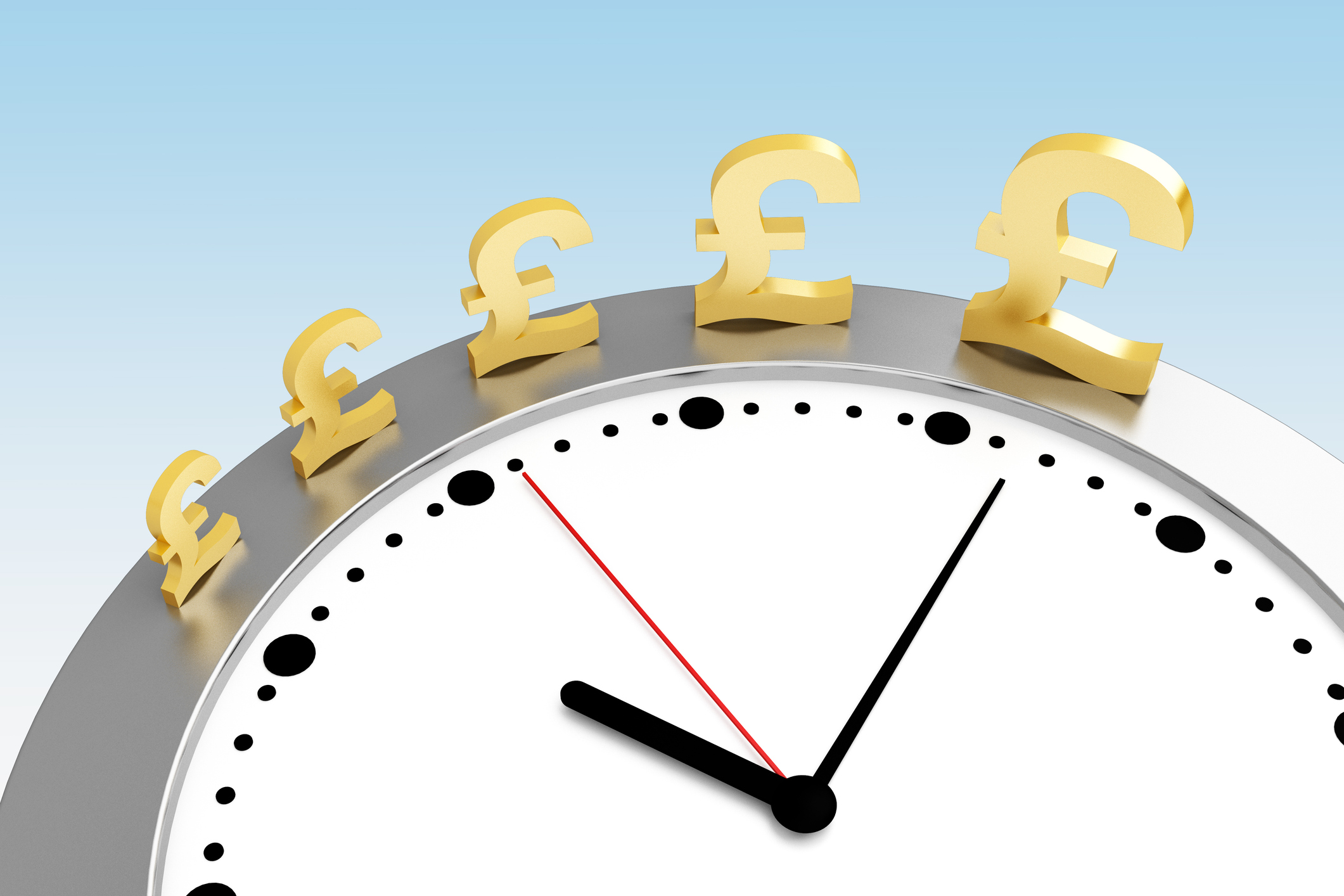NS&I to cut Premium Bond prize rate to 4.15%
The odds of winning a prize will fall to 22,000 to 1 for the December draw, while NS&I is also slashing the rates on other savings products. We have all the details


Get the latest financial news, insights and expert analysis from our award-winning MoneyWeek team, to help you understand what really matters when it comes to your finances.
You are now subscribed
Your newsletter sign-up was successful
Want to add more newsletters?

Twice daily
MoneyWeek
Get the latest financial news, insights and expert analysis from our award-winning MoneyWeek team, to help you understand what really matters when it comes to your finances.

Four times a week
Look After My Bills
Sign up to our free money-saving newsletter, filled with the latest news and expert advice to help you find the best tips and deals for managing your bills. Start saving today!
National Savings & Investments (NS&I) is cutting the Premium Bond prize fund rate from 4.4% to 4.15%, in a blow to millions of savers.
The change to Premium Bonds will come into effect in the December draw. It marks the second cut by the government-backed savings giant this year. In March, the prize rate was reduced from 4.65% - its highest rate since 1999 - to 4.4%.
NS&I is also lowering the rates on its Direct Saver and Income Bonds, while launching new issues of two-year British Savings Bonds.
MoneyWeek
Subscribe to MoneyWeek today and get your first six magazine issues absolutely FREE

Sign up to Money Morning
Don't miss the latest investment and personal finances news, market analysis, plus money-saving tips with our free twice-daily newsletter
Don't miss the latest investment and personal finances news, market analysis, plus money-saving tips with our free twice-daily newsletter
A cut to the Premium Bond prize fund rate had been expected, given the decline in savings rates following the Bank of England’s base rate cut in the summer. NS&I, which boasts 25 million customers, also overshot its fundraising target last year, making a Premium Bond cut more likely as it tries to limit the amount of money it has on its books.
Sarah Coles, head of personal finance at Hargreaves Lansdown, comments: “Like any horrible news, it doesn’t make it any easier that we knew this was coming. The Premium Bond prize rate has finally been hit with the business end of the savings rate scythe, as NS&I has followed the rest of the easy-access savings market by cutting the chances of a win.”
How will the Premium Bond prize draw change?
From the December draw, the prize fund rate for Premium Bonds will fall from 4.4% to 4.15%. The odds of winning will reduce from the current odds of 21,000 to 1 to 22,000 to 1.
There will still be two £1 million jackpots in the monthly draw. However, the number of other prizes will all reduce, bar the £25 prizes.
For example, there will only be 83 £100,000 prizes from December (down from 88), and 167 prizes worth £50,000 (down from 177).
But, the number of £25 prizes will rise from 1,490,033 to 1,509,458.
| Value of prizes | Number and total value of prizes in October 2024 | Number and total value of prizes in December 2024 (estimate) |
| £1,000,000 | 2 | 2 |
| £100,000 | 88 | 83 |
| £50,000 | 177 | 167 |
| £25,000 | 353 | 332 |
| £10,000 | 883 | 830 |
| £5,000 | 1,766 | 1,664 |
| £1,000 | 18,452 | 17,426 |
| £500 | 55,356 | 52,278 |
| £100 | 2,212,098 | 2,072,099 |
| £50 | 2,212,098 | 2,072,099 |
| £25 | 1,490,033 | 1,509,458 |
| Total | 5,991,306 prizes worth a total of £461,330,525 | 5,726,438 prizes worth a total of £435,686,300 |
What other changes has NS&I announced?
The savings giant is also cutting the interest rate for its Direct Saver from 4% to 3.75%, and lowering the rate on Income Bonds from 3.93% gross / 4.00% AER to 3.69% gross/3.75% AER. These changes will take effect on 20 November.
Andrew Westhead, NS&I retail director, comments: “As the savings market continues to change, we need to lower the rates on some of our products to help us meet our tet financing target, while also ensuring we continue to balance the interests of our savers, taxpayers and the broader financial services sector.”
According to Coles, it’s the first drop in interest rate for these products in four years, “but at 3.75% AER, they’re still well off the pace of the best on the market, where you can still make up to 5% - and a vast array of accounts still offer well over 4.5%”.
NS&I has also launched a new two-year issue of British Savings Bonds. These offer 4.10% for the Guaranteed Growth Bond option, and 4.02% gross / 4.09% AER for the Guaranteed Income option.
Should I stay with NS&I or move my money?
In terms of the savings accounts, you can get higher interest rates elsewhere. For example, the best two-year fixed-rate savings account pays 4.6%, according to the analyst Moneyfacts. You can get this rate from Atom Bank, JN Bank and Union Bank of India (UK).
This compares to the 4.1% on offer from NS&I’s British Savings Bond (or 4.02% / 4.09% if you choose the income option).
The same is true for NS&I’s other savings accounts; you can secure better returns with other banks and building societies.
Coles notes: “If you’re holding any of these accounts – or indeed any account where the bank has cut the rate - don’t assume it’s not worth switching because deals are falling everywhere. There are still some great rates available from online banks and cash savings platforms, so now is the time to move and make the most of them.”
When it comes to Premium Bonds, it depends what sort of saver you are. If you have already used up your ISA allowance and face paying tax on the interest you earn, you may like Premium Bonds because the prizes paid out are tax-free.
You may also enjoy the thrill of scooping cash sums, and the possibility of landing a big prize one day.
However, don’t forget that you may not win any prizes, and the cut to the prize fund rate will make it less likely from December. The new 4.15% prize rate is not the same as a 4.15% interest rate. Some Premium Bond holders win nothing, while someone else could scoop a prize of, say, £50,000, which will give them an equivalent rate that’s far higher than 4.15%.
Coles comments: “The prize rate doesn’t reflect what you’ll make with Premium Bonds, and because of the lumpy way that prizes are awarded, the average person with £1,000 in bonds will still win nothing in the average month. The lengthening of the odds of a win should be food for thought for anyone who is holding money in these accounts and losing money after inflation. This could be the straw that breaks the camel’s back, and could be enough to persuade you to consider savings accounts instead.”
Other banks offer prize draws - check out our round-up of Premium Bond alternatives.
Get the latest financial news, insights and expert analysis from our award-winning MoneyWeek team, to help you understand what really matters when it comes to your finances.

Ruth is an award-winning financial journalist with more than 15 years' experience of working on national newspapers, websites and specialist magazines.
She is passionate about helping people feel more confident about their finances. She was previously editor of Times Money Mentor, and prior to that was deputy Money editor at The Sunday Times.
A multi-award winning journalist, Ruth started her career on a pensions magazine at the FT Group, and has also worked at Money Observer and Money Advice Service.
Outside of work, she is a mum to two young children, while also serving as a magistrate and an NHS volunteer.
-
 Should you buy an active ETF?
Should you buy an active ETF?ETFs are often mischaracterised as passive products, but they can be a convenient way to add active management to your portfolio
-
 Power up your pension before 5 April – easy ways to save before the tax year end
Power up your pension before 5 April – easy ways to save before the tax year endWith the end of the tax year looming, pension savers currently have a window to review and maximise what’s going into their retirement funds – we look at how
-
 NS&I February Premium Bonds winners revealed – did you win £1 million?
NS&I February Premium Bonds winners revealed – did you win £1 million?More than 2.7 million historic Premium Bonds prizes are still waiting to be claimed, NS&I says
-
 Premium Bonds winners announced – did you scoop the September jackpot?
Premium Bonds winners announced – did you scoop the September jackpot?NS&I has announced the winners for September’s Premium Bonds prize draw, with two lucky savers becoming overnight millionaires. Did you win this month?
-
 NS&I announces August 2025 Premium Bonds winners – did you win £1 million jackpot?
NS&I announces August 2025 Premium Bonds winners – did you win £1 million jackpot?NS&I has released details about August 2025’s Premium Bonds jackpot winners. We look at who won a big prize this month
-
 How long does it take to win a Premium Bonds prize?
How long does it take to win a Premium Bonds prize?It could take much longer than you think to win something in the Premium Bonds prize draw
-
 Premium Bond winners – who won the December £1 million jackpot?
Premium Bond winners – who won the December £1 million jackpot?NS&I has unveiled December’s Premium Bond winners. Who bagged the jackpot and what other prizes are on offer?
-
 NS&I cuts Premium Bond prize fund rate to 4%
NS&I cuts Premium Bond prize fund rate to 4%NS&I will reduce the Premium Bond rate from 4.15% to 4% in January, while also cutting the rates on other savings accounts. Are Premium Bonds still worth it?
-
 Premium Bond winners – who won the November £1 million jackpot?
Premium Bond winners – who won the November £1 million jackpot?NS&I unveils November’s Premium Bond winners. Who bagged the jackpot and what other prizes are on offer?
-
 Premium Bond winners – who drew the October £1 million jackpot?
Premium Bond winners – who drew the October £1 million jackpot?NS&I unveils October’s Premium Bond Winners. Who bagged the £1million jackpot and what other prizes are on offer?